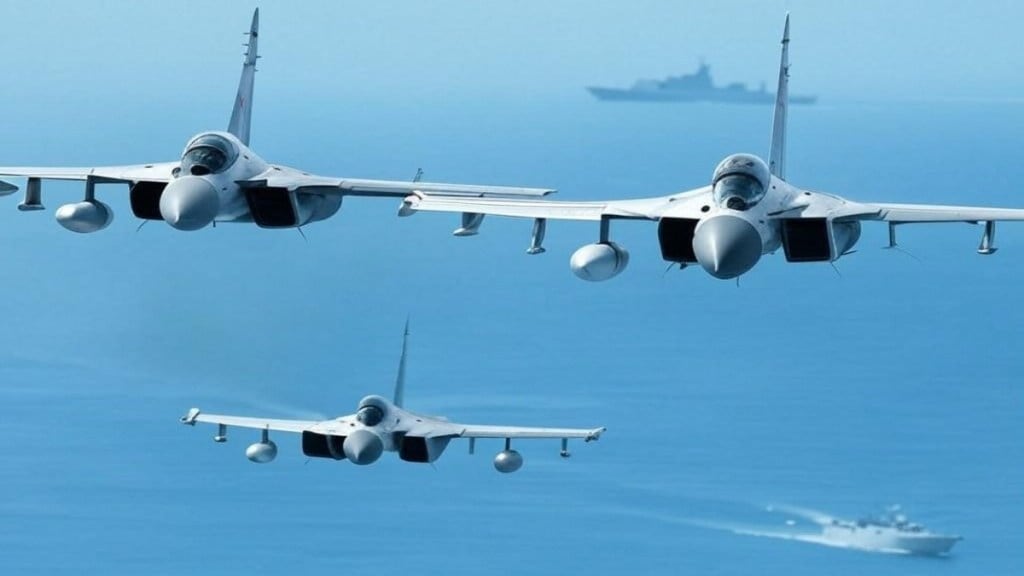In the closing days of the year, tensions between China and Taiwan have reached a new peak. On multiple occasions, Chinese military aircraft and naval ships have crossed the median line, a demarcation line in the Taiwan Strait, entering Taiwan’s territory. Taiwan’s National Defence Ministry confirmed these incursions, reinforcing its alert status and increasing military readiness in response.
China’s Military Moves and Taiwan’s Defence Response
Taiwan reported that 23 Chinese military aircraft and six naval vessels were observed near the island early in the morning. Of these, 16 aircraft crossed the median line, entering Taiwan’s northern, southwestern, and eastern Air Defence Identification Zones (ADIZ). The Ministry of National Defence (MND) confirmed it was closely monitoring the situation and responded swiftly.
This incident follows a series of similar Chinese military activities over recent days. On Sunday, Taiwan reported five Chinese aircraft and five naval ships near its waters. The previous day, seven Chinese aircraft and five ships had been detected.
In response to this rising threat, Taiwan has announced plans to enhance the capabilities of its military. It is focusing on strengthening its paratroopers and special forces with cutting-edge training techniques and advanced gear, positioning them as a stronger deterrent against Chinese aggression.
US-Taiwan Military Support Stokes Tensions
The surge in military activity comes amid escalating tensions surrounding U.S. military aid to Taiwan. Just last Friday, the U.S. announced a significant defence support package for Taiwan worth approximately Rs 4.85 thousand crore, in addition to Rs 2.50 thousand crore in military sales. This support has sparked outrage from China, which has long viewed Taiwan as part of its territory and sees U.S. involvement as a direct threat to its sovereignty.
China’s Foreign Ministry condemned the US for what it described as a violation of the “One China” policy. A government spokesperson issued a stern warning, stating that “America is playing with fire” by supporting Taiwan, and reiterated that China would take “whatever necessary measures” to protect its territorial integrity.
China has called on the US to cease its arms sales to Taiwan, arguing that this could destabilize the region and exacerbate tensions. “This move endangers peace and stability,” said Xu Fengliang, a spokesman for the State Council. “We strongly oppose military assistance to Taiwan.”
NATO Warns of China’s Growing Military Power
NATO Secretary General Mark Rutte has also weighed in on the situation, urging the world to pay closer attention to China’s growing military capabilities. In recent statements, Rutte emphasized the lack of transparency in China’s military buildup, particularly its nuclear weapons programs. “We should think clearly about China’s ambitions,” he cautioned, noting the expansion of China’s military presence and its potential global impact.
The Growing Risk of Conflict
As the new year approaches, fears are growing that the China-Taiwan conflict could soon escalate into full-scale war. Experts have drawn comparisons to Russia’s invasion of Ukraine, warning that China may be waiting for an opportunity to take aggressive action against Taiwan. Some analysts suggest that Taiwan’s increased military preparedness could provoke China into using force to reclaim what it considers its territory.
With both sides ramping up their military postures, the coming weeks could be critical in determining whether this conflict will remain a geopolitical standoff or spiral into something much more dangerous.

